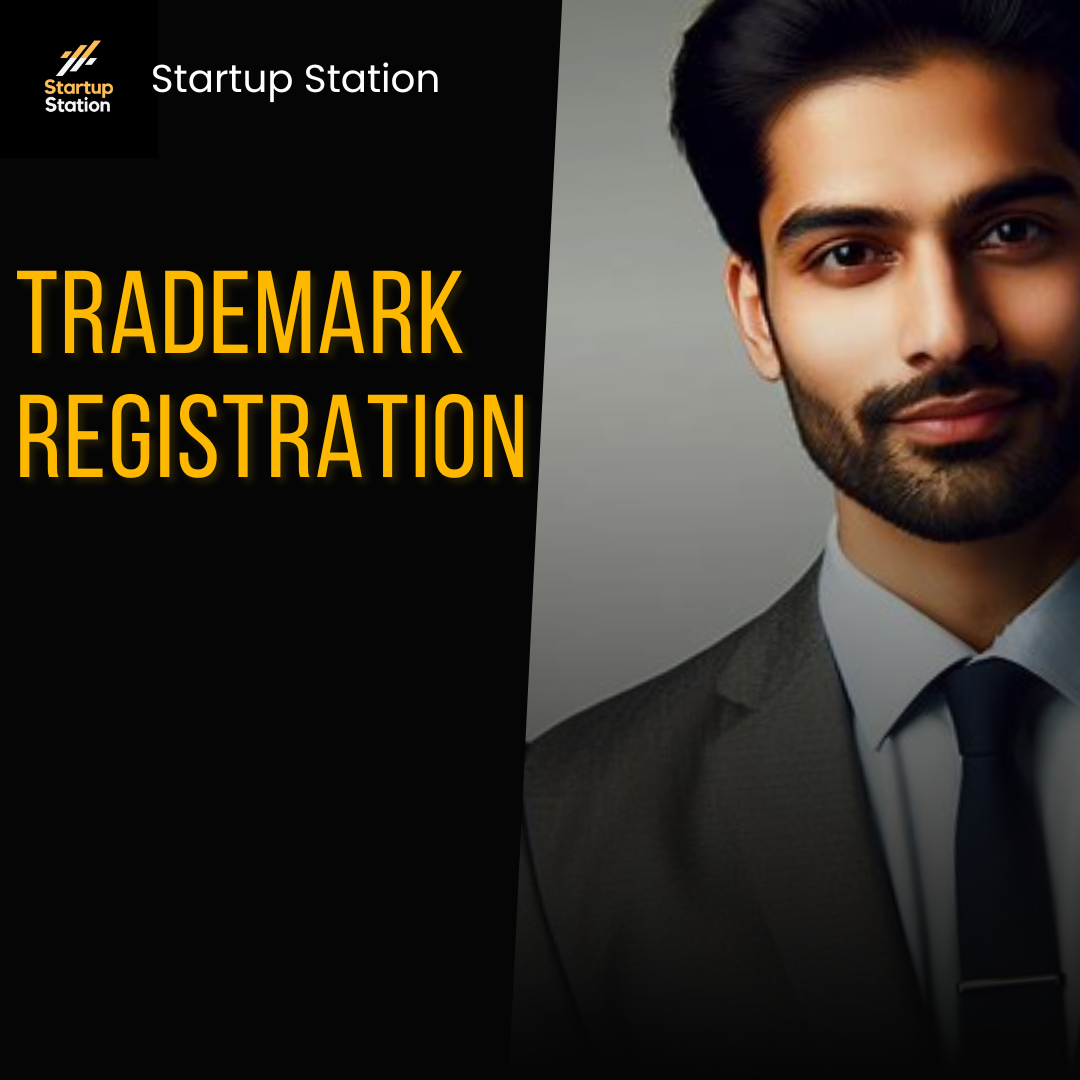I. Introduction
In today's fiercely competitive business landscape, establishing a distinct identity for your product or service is paramount. One of the key components in achieving this differentiation is a strong brand, comprising elements such as logos, slogans, and designs. Central to protecting this brand identity is the process of trademark registration. In this guide, we'll delve into the intricacies of trademark registration, why it's essential, who can apply, the different types of trademarks, the registration process in India, and how Startup Station can assist you every step of the way.
II. Understanding Trademarks: The Foundation of Brand Protection
1. What is a Trademark?
A trademark serves as a unique identifier for goods or services, setting them apart from competitors in the market. It encompasses various elements like symbols, names, or designs that are associated with a specific brand.
2. Importance of Trademark Registration
Registering a trademark provides legal protection for your brand, safeguarding it against unauthorized use by others. It establishes your exclusive rights to use the mark in connection with your offerings, thus preventing confusion among consumers and preserving your brand's integrity.
III. Who Can Apply for Trademark Registration?
Trademark registration is open to a wide range of entities and individuals, including sole proprietors, partnerships, companies, LLPs, trusts, and societies. This inclusivity ensures that businesses of all sizes can protect their brand identities.
IV. Types of Trademark Registrations
1. Product Mark
This type of trademark is applied to tangible goods, helping consumers identify their origin and maintain brand reputation.
2. Service Mark
Similar to a product mark, a service mark distinguishes services rather than physical products, aiding in differentiation among service providers.
3. Collective Mark
Representing specific characteristics of products or services associated with a group, collective marks protect and represent goods or services collectively.
4. Certification Mark
Certification marks provide information about a product's origin, quality, or other relevant details, assuring consumers of standardized quality.
5. Shape Mark
Shape marks secure the distinct shape of a product, making it recognizable as originating from a specific source.
6. Pattern Mark
Pattern marks are used for products featuring unique designed patterns, serving as distinguishing features.
7. Sound Mark
Distinctive sounds associated with products or services, like jingles or audio mnemonics, fall under sound marks.
8. Choosing the Correct Trademark Class
Trademark classes categorize goods and services into distinct categories, determining the validity of your trademark registration. It's crucial to select the appropriate class(es) that align with your business offerings to ensure comprehensive protection.
V. Trademark Registration Process in India
1. Trademark Search
Before registering a trademark, conducting a comprehensive search is imperative to identify potential conflicts and ensure the uniqueness of your mark.
2. Required Documents for Registration
Documents required for trademark registration vary based on the type of applicant, including PAN cards, Aadhar cards, incorporation certificates, partnership deeds, and trust deeds.
3. Trademark Filing and Examination
The trademark registration process involves filing an application with the Trademark Registrar, followed by examination and publication in the Trademark Journal.
4. Trademark Hearing and Registration
In case of objections or oppositions, a hearing may be scheduled to resolve disputes. Upon successful registration, the ® symbol can be used to indicate trademark status.
VI. How Startup Station Can Assist You
1. Trademark Search and Application
Startup Station offers expert assistance in conducting trademark searches and filing applications, ensuring accuracy and completeness.
2. Trademark Objection Handling
In the event of objections or oppositions, Startup Station provides support in crafting responses and navigating the legal process.
3. Post-Registration Services
Beyond registration, Startup Station offers services like trademark renewal, assignment, and licensing to ensure ongoing protection for your brand.
4. Conclusion
Trademark registration is a crucial step in safeguarding your brand's identity and ensuring its distinctiveness in the market. With Startup Station's expert guidance, you can navigate the intricacies of trademark registration with ease, protecting your valuable intellectual property rights and setting your business up for success.
FAQs (Frequently Asked Questions)
How long does trademark registration last?
Trademark registration is valid for ten years from the filing date, with the option for indefinite renewal.
Can I register multiple trademarks for different products or services?
Yes, you can register trademarks for various goods or services under different classes to ensure comprehensive protection.
What happens if my trademark application is objected to?
If objections are raised, you'll have the opportunity to address them before the Trademark Registrar to seek approval.
Is trademark registration mandatory for businesses?
While not mandatory, trademark registration provides legal protection and is highly recommended for businesses looking to safeguard their brand identity.
How long does the trademark registration process take?
The trademark registration process typically takes around 12 to 18 months, depending on factors like objections and oppositions.
What are the benefits of trademark registration?
Trademark registration offers several benefits, including legal protection against infringement, exclusive rights to use the mark, enhanced brand reputation, and the ability to license or sell the trademark.
Can I trademark a domain name?
Yes, domain names can be trademarked if they meet the criteria for trademark registration, such as being distinctive and not infringing on existing trademarks.
What is the difference between ™ and ® symbols?
The ™ symbol indicates that a trademark is being used, while the ® symbol signifies that the trademark is registered with the appropriate authorities and enjoys legal protection.
Is international trademark registration possible?
Yes, through treaties like the Madrid Protocol, businesses can apply for international trademark registration, providing protection in multiple countries with a single application.
Can a trademark be revoked or canceled?
Yes, trademarks can be revoked or canceled under certain circumstances, such as non-use of the mark for an extended period or if the mark becomes generic through common usage.
